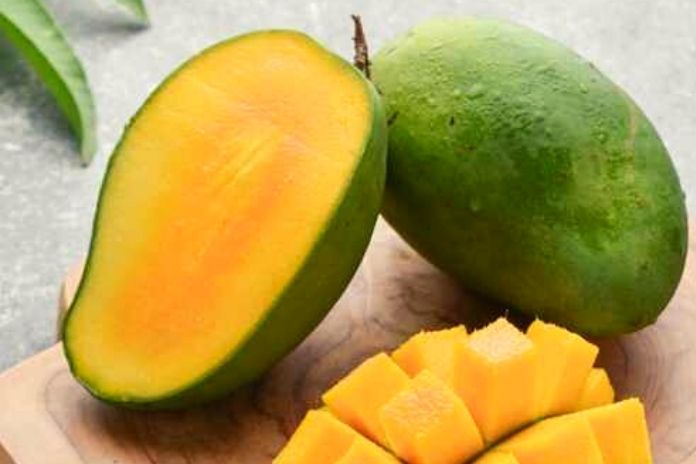Mango is a fruit rich in beneficial properties for our body: it contains a lot of water, fiber, vitamins, mineral salts, and carbohydrates, and it is helpful against water retention, constipation, stress, and more. But let’s find out more about the properties of mango, how to eat and consume it, and the contraindications.
Mango is a tropical fruit native to India that belongs to the Anacardiaceae family. The mango tree, the Mangifera, produces these exquisite fruits with an oval shape and a dark red, yellow, or green skin, depending on the species, while the pulp can be yellow or orange, very fragrant, and sweet. Mango is a fruit rich in beneficial properties for our body: it contains a lot of water, fiber, vitamins, mineral salts, and carbohydrates, and it is helpful against water retention, constipation, stress, and more. But let’s find out more about the properties of mango, how to eat and consume it, and the contraindications of this juicy exotic fruit.
Properties And Benefits Of Mango
Mango is a fruit rich in minerals, especially calcium, phosphorus, magnesium, iron, and potassium; it is also an excellent source of vitamin A, but also contains B vitamins, vitamins C, E, K, and J. presence of lupeol, a valuable antioxidant for the health of the colon and pancreas, and which would give the fruit anticancer properties. It contains about 60 kcal per 100 g of product and has many nutritional properties; it is also rich in water, making it the ideal fruit to combat water retention and constipation. Vitamin A protects the mucous membranes of the respiratory system.
At the same time, vitamin C helps cells resist external attacks, also protects against the harmful action of free radicals, thus preventing aging, helps to assimilate iron, fighting anemia, and it is essential for the synthesis of collagen, which gives elasticity to our skin. Mango is also an energizing and anti-stress fruit; it helps fight fatigue thanks to minerals such as potassium and magnesium, which also help reduce blood pressure: therefore suitable for people suffering from hypertension. Mango also contains pectin, a soluble fiber that helps lower blood cholesterol levels.
How To Consume Mango
Mango is a fruit with a sweet and slightly acidic flavor and an unmistakable scent. The shape, color, and texture can change according to the variety and the species it belongs to. In Italy, mango is mainly consumed raw or in a centrifuged version as fruit juice, but it can also be used to prepare desserts and ice cream. You can also eat a mango for a fresh snack, perhaps making a smoothie with the addition of kiwi and yogurt. First of all, it is essential to wash the fruit, peel it and divide it in two, removing the stone. You can then cut it into slices or pieces and consume it as you like. In some countries, especially in Asia, mango is also cooked in many recipes.
In case of respiratory system inflammation, you can also use mango to prepare a decoction with anti-inflammatory action. Take the well-washed mango peel, cut it into pieces and let it boil in water for about ten minutes; filter and drink. You can consume it for a week by drinking 2 cups a day.
Cosmetic Uses Of Mango
In cosmetics, mango can be used in case of acne to purify the skin:
- Apply the pulp of ripe mango to the skin.
- Leave it on for 10 minutes.
- Rinse the face with warm water.
You can use it as a daily treatment. However, in case of dry skin, you can use mango butter, which makes it soft and velvety. On the other hand, the hair can be used as a pack to combat dryness and split ends.
Contraindications
If consumed in excessive doses, mango can cause diarrhea and colic. Furthermore, this fruit is rich in sugars. Therefore it must be consumed carefully by those on a diet and is not suitable for those who have diabetes. Always consume mango without peel, as the latter could cause allergic dermatitis on the lips, gums, and tongue. The peel of the mango could also cause contact dermatitis in predisposed subjects due to urushiol, an oil that we also find in poison ivy.
Also Read: Tofu: Composition, Cooking, And Benefits

